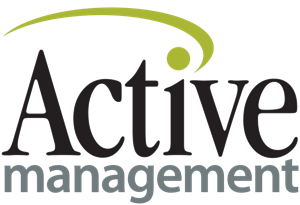Top 10 Tips And Traps When Buying Or Selling A Health Club

Buying or selling a health club may seem like a relatively simple process; however there is a significant legal risk that it may turn sour if a sub-standard sale contract is entered into.
For a buyer, it is important that you know exactly what you are buying and that you cover the key legal risks involved.
For a seller, it is imperative to optimise the value of your business prior to the sale by understanding the key items purchasers will be looking for.
Some of the ‘key items’ from a legal perspective include:
- The historical financial data of the business. We would ordinarily expect the vendor to provide some degree of comfort to the purchaser (via the sale contract) in relation to the accuracy of the financials of the business.
- Existing membership contracts in place and whether their terms and conditions are desirable. For example, you must be careful to not inherit liability for membership contacts which are non-compliant with legislation and / or you may wish to overhaul the membership model. Also, disputes often arise in relation to who gets the revenue from paid in advance memberships.
- Employment contracts. Given that personal trainers are often a key source of recurring revenue, it is important to ensure that appropriate and enforceable employer protections are included in their employment contracts (e.g. cascading restraint clauses and protections from stealing clients).
- Concentration of competitors in the surrounding region and whether there are any newly established gyms due to open after the sale is complete.
- Lease / property due diligence, including the terms of the lease, landlord consent provisions, make good obligations, operating hours and rent review mechanisms (to name a few).
- Assessment of the safety and suitability of any gym equipment being purchased. This is a critical aspect of minimising any potential future exposure.
- Parking facilities. Inadequate parking can stifle membership growth and cause issues with neighbours and the local council.
- The adequacy and cost of current insurance arrangements, including levels of cover and premiums payable.
- Existing banking and finance arrangements (including the nature of any registered security interests).
- Intellectual property. Whether any trademarks have been registered and whether there have been any actual or claimed infringements by competitors.
If issues with any of the above matters are identified, then it is worth engaging with the other party to discuss how risks should be appropriately covered in the legal documentation for the sale. Carefully tailored provisions are often required to ensure that both parties are comfortable to proceed.
Getting the legal documentations done properly are the legal equivalents of leg day. They are often overlooked, massively under-appreciated and failure to do it results in some serious pain. You should always seek legal advice before entering into any future sales contracts to ensure your legal processes run smoothly.
Scott McKenzie
Lawyer (Fitness Industry)
Velocity Legal
www.velocitylegal.com.au
Scott McKenzie is a corporate lawyer who is recognised as
“Australia’s leading lawyer to the fitness industry”.
Scott will be running our November ‘Virtual Roundtable’ for members on the Member Hub from 5th November to the 15th November. This is your chance to get Scott’s advice and ask any legal questions relating to your business.

Become A Member Now or Already a member? Click here to login

Justin is the Managing Director of Active Management, which he began January 2004. He offers coaching to businesses worldwide in everything from start up and design to marketing and sales systems. Justin also facilitates four Australian and New Zealand ‘fitness industry roundtables’ events, which allows him to see a huge cross section of business models.
